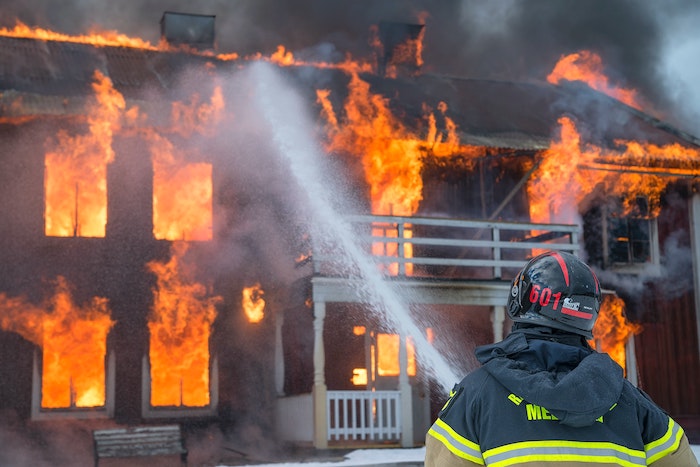
It’s always the right time to talk about fire safety. This year, My Alarm Center is joining the American Burn Association to dedicate a week of time for education and advocacy around fire safety and burn prevention. The American Burn Association and its members dedicate their efforts and resources to promoting and supporting burn-related research, education, care, rehabilitation, and prevention. This year, the theme for the observance of National Burn Awareness Week (February 7-13, 2021) is Electrical Injury and Burn Prevention.
In the U.S., approximately 400,000 people receive medical care for treating injuries caused by burns each year, with many of these accidents occurring in the home. Electrical burns in the home often come from dangerous exposure points. Think unprotected outlets, improperly used extension cords, and faulty-wired lighting. But there are some basic prevention tips you can utilize to keep you and your family safe.
Basic Electrical Fire and Burn Prevention Tips
Take the time to check all of the outlets throughout your home. Pay close attention to plugged in, active appliances. Major appliances like electric stoves, dish washers and washing machines, dryers and more should always be plugged directly into a wall outlet. Never use an extension cord or power strip for major appliances. Also be sure to check wires for any cracks or damages. Prevention starts with checking your surroundings!
To treat a minor burn:
- Run under cool water immediately for 3 to 5 minutes.
- Cover with a clean, dry cloth.
- Seek medical attention for a severe burn.
Make sure your heating, ventilation, and air conditioning systems (HVAC) are also up to par. A qualified professional should annually inspect your internal systems to ensure their quality and safety.
Warning Signs to Watch For
Another aspect of fire and burn prevention is simply paying attention to any potential risks. Are you noticing a flickering light or a tripped circuit breaker? Are your switches feeling hot to the touch? Don’t ignore it! Make sure your light bulbs are secured all the way, and eliminate the potential that your wiring is faulty. Move smaller appliances to other circuits. Or don’t run major appliances simultaneously. That way you don’t overload your circuit either.
Be aware of any potential dangerous access points! Do you notice a leak during a heavy rainstorm? Make sure it’s not near any of your electrical outlets. Often times the simplest of checklists can help prevent and avoid fires and burns.
Protect Your Home with Monitored Smoke and CO Alarms
By far the easiest and most important line of defense against house fires, and in turn burns, is the use of Smoke and CO detectors. Conventional smoke alarms are great, but they only go as far as letting you know that you’re in danger. It’s up to you to take those next steps to safety. But what if no one is home? What if it’s too late, and you or someone you love is already struggling with a severe burn injury? In emergency moments where time is precious, a few minutes can be the difference between life and death.
While most homes and businesses utilize some form of battery-powered smoke alarms and CO detectors, monitored systems can add that extra layer of protection. Here’s how it works:
- My Alarm Center’s monitored CO and fire protection system detects smoke or carbon monoxide.
- Central Monitoring Station is alerted and calls the home to assess the situation, then the authorities if needed.
- First responders are dispatched, and arrive on scene in minutes rather than hours.
A monitored system not only detects the danger and attempts to contact you, but takes that next step to actually dispatch first responders. Those precious minutes could be the difference between life and death.
For More Security and Home Automation Tips and Solutions, Stick with My Alarm Center
At My Alarm Center, monitored CO and fire prevention systems are linked to our central monitoring. That means we can summon appropriate help when an alarm goes off, whether you are home or not, even if the security alarm is not armed. Monitoring is especially important in cases where occupants are not capable of responding appropriately to a traditional alarm. Such as the elderly or disabled individuals, children, individuals already overcome by the effects of CO or smoke, and pets in an otherwise empty house. Firefighters recommend placing one monitored smoke/CO detector in every bedroom and living space.
And if you’re looking for more ways to keep yourself and your family safe, check out our home security and automation services at My Alarm Center. We offer a wide range of home security options to protect you and your family. If you’re ready to discuss our custom solutions, contact us today to learn more about our services and how we can help you prepare for what’s next.

